Πολιτισμοί, Μεταναστεύσεις, Σύνορα - MigBord2019
ALEXANDRA BOUNIA (a.bounia@ucl.ac.uk; abounia@ct.aegean.gr) - UCL QATAR; UNIVERSITY OF THE AEGEAN
Alexandra Bounia studied Archaeology and History of Art at the University of Athens (Greece) and Museology at the University of Leicester (UK). Her research interests focus on the history, theory and management of collections and museums, museum ethics, museum sustainability, the role of museums in dealing with difficult and political issues. She is a Professor of Museology at the University of the Aegean in Greece and holds the position of Degree Director for the MA Course in Museum and Gallery Practice in UCL Qatar. She has also served as the Chair of the Hellenic Committee of ICOM (2016-2018), as well as the Board’s Executive Secretary (2012-2016).She has published in Greek and international journals and participates in research projects in Greece and abroad, like the FP7 project EUNAMUS (European National Museums: Identity Politics, the Uses of the Past and the European citizen) (www.eunamus.eu). She co-edited with Susan M. Pearce the book Collector’s Voice: Ancient Voices, which was published in 2001 by Ashgate Press. Her book Collectors and Collections in the Ancient World: The Nature of Classical Collecting was published in 2004 by the same publisher, while in 2009 her book “Behind the Scenes of the Museum”: Collections Management in Contemporary Museums was published in Greek by Patakis Publications. Her most recent book, written together with Theopisti Stylianou-Lambert, and entitled The Political Museum: Power, Conflict and Identity in Cyprus, was published in 2016 by Routledge.
HEATH CABOT (hcabot@pitt.edu) - UNIVERSITY OF PITTSBURGH
Heath Cabot is an assistant professor of anthropology at the University of Pittsburgh. She completed her M.A. (2005) and PhD (2010) at the University of California, Santa Cruz, and she has since held postdoctoral positions at Princeton University and the University of Sussex. She is a legal and political anthropologist whose research interests lie in the areas of aid distribution, ethics and epistemology, and citizenship. Her first research project focused on the asylum procedure in Greece, humanitarian aid and human rights professionals, and the everyday effects of EU and Greek law and policy. She has recently begun a new project on social solidarity pharmacies and the (re)distribution of pharmaceuticals and care in the face of a healthcare crisis in Greece. Her work has been funded twice by the Fulbright Foundation in Greece, the WennerGren Foundation for Anthropological Research, The US National Science Foundation, and the Woodrow Wilson National Fellowship Foundation. She is also the co-editor of the Political and Legal Anthropology Review.
Author of
(2016) "Refugee Voices:" Tragedy, Ghosts, and the Anthropology of Not Knowing. Journal of Contemporary Ethnography 45 (6): 645-672;
(2014) On the Doorstep of Europe: Asylum and Citizenship in Greece. &
(2013) The social aesthetics of eligibility: NGO aid and indeterminacy in the Greek asylum process. American Ethnologist 40 (3): 452-466
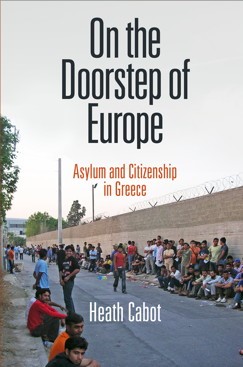
JANE COWAN (j.cowan@sussex.ac.uk) - UNIVERSITY OF SUSSEX
Jane Cowan is Professor of Social Anthropology at the University of Sussex and for academic year 2018-2019, is Jane and Aatos Erkko Visiting Professor at the Helsinki Collegium for Advanced Studies at the University of Helsinki https://www.helsinki.fi/en/helsinki-collegium-for-advanced-studies/people/current-hcas-fellows-a-n#section-58243. At Sussex, she is Co-Director of the Sussex Rights and Justice Research Centre, as well as a member of the Sussex Centre for Migration Research and the Centre for Gender Studies. She received an MA (1982) and PhD (1988) in Sociocultural Anthropology and Ethnomusicology from Indiana University, Bloomington. From 2002-2005 she was Head of the Anthropology Department at the University of Sussex. Funded by the Macarthur Foundation and British Academy Leverhulme, Jane has carried out archival research at the League of Nations Archives and has published a series of articles since 2003 focusing on claims for rights and for Macedonian nationhood made on behalf of the so-called ‘Bulgarian minorities’ in Yugoslavia and Greece; she is now writing a book on this material. In 2010-2011, funded by the British Academy, Jane carried out fieldwork (with Julie Billaud) on the Universal Periodic Review, a new (since 2006) United Nations human rights monitoring mechanism in Geneva. She has authored two books, Dance and the Body Politic in Northern Greece (Princeton, 1990) and Macedonia: The Politics of Identity and Difference (Pluto, 2000), and has co-edited (with M. Dembour and R.Wilson) Culture and Rights: Anthropological Perspectives (Cambridge, 2001). From 2008, she was an active member of the international academic network, EastBordNet, and currently serves on the advisory board for the ERC and Academy of Finland funded project, CrossLocations, both headed by Professor Sarah Green.
Author of (2014) ‘Between learning and schooling: The politics of human rights monitoring at the Universal Periodic Review’ (with Julie Billaud) http://sro.sussex.ac.uk/id/eprint/53814/
(2006) Culture and Rights after Culture and Rights.
Co-editor of (2001) Culture and Rights: Anthropological Perspectives.
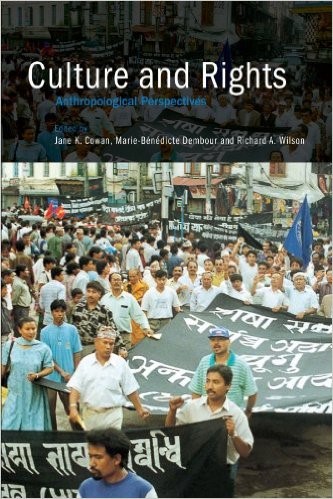
SARAH GREEN (sarah.green@helsinki.fi) - UNIVERSITY OF HELSINKΙ
Sarah Green is Professor of Social Anthropology at the University of Helsinki. She is a specialist on location, borders and spatial relations, though the subject matter of her research over the last 20 years has been diverse and has included among others the politics of gender and sexuality, conceptions of the environment, circulation of money in the Aegean, border relations on the Greek-Albanian border and, most recently, the shifting concept of border in the eastern peripheries of Europe. Her publications include Notes from the Balkans (2005; Princeton University Press) winner of the Douglass Prize for best contribution to Europeanist Anthropology; and Urban Amazons (1997), an ethnography on separatist feminists in London. In 2008, Professor Green launched an international research network, EastBordNet dedicated to developing new approaches towards the study of borders on the eastern peripheries of Europe, from the Baltics and environs down to the Balkans and environs. The network (EastBodNet) now involves 27 countries and over 280 researchers.
Co-author of (2013) Borderwork: A visual Journey through Peripheral Frontier Reginos.
Author of (2005) Notes from the Balkans: Locating Marginality and Ambiguity on the Greek-Albanian Border.
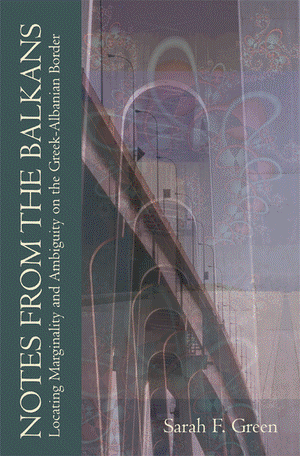
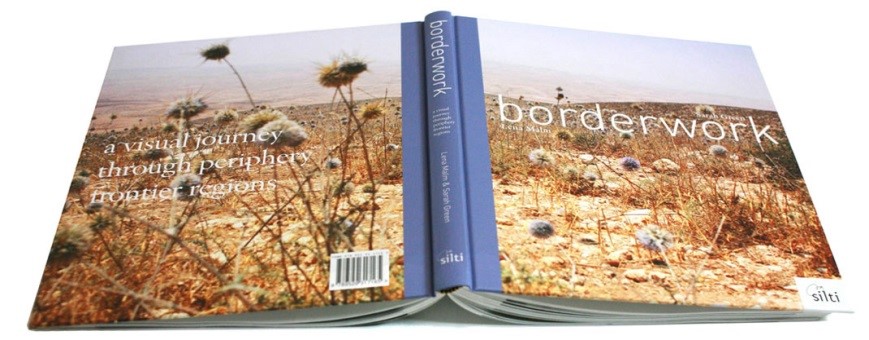
BARAK KALIR (B.Kalir@uva.nl) - UNIVERSITY OF AMSTERDAM
Barak Kalir is Associate Professor at the Department of Sociology and Anthropology at the University of Amsterdam. He is co-director of the Institute for Migration and Ethnic Studies (IMES) and program director of the two Masters Programmes. From 2006 to 2009 he was a post-doc researcher and programme coordinator of the WOTRO/NWO Integrated Programme: Illegal but Licit on transnational flows in Asia. He has published several articles and book chapters on the subject of migration, like ‘Uncovering the Legal Cachet of Labor Migration to Israel’ in David and Koslowski (eds.) Global Human Smuggling Johns Hopkins University Press (2011). His book Latino Migrants in the Jewish State: Undocumented Lives in Israel (Indiana University Press, 2010) has been nominated for the Book Prize awarded by the Society for Economic Anthropology and has been awarded the highest recommendation at the influential American review Choice. Kalir has also co-edited with Malini Sur “Transnational Flows and Permissive Polities: Ethnographies of Human Mobilities in Asia” IIAS Publication Series, Amsterdam UP (2012). He is currently directing a 5-year ERC-funded research project on the Social Life of State Deportation Regimes (The Social Life of State Deportation Regimes: A Comparative Study of the Implementation Interface) in Spain, Greece, The Netherlands, Ireland, India, Israel and Ecuador.
Author of The deportation continuum: convergences between state agents and NGO workers in the Dutch deportation field (2015) &
Co-editor of Transnational Flows and Permissive Polities: Ethnographies of Human Mobilities in Asia. (2012) (see also)
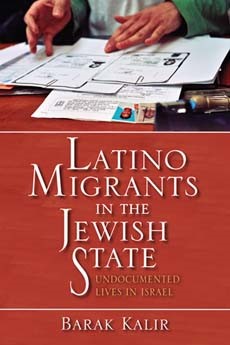
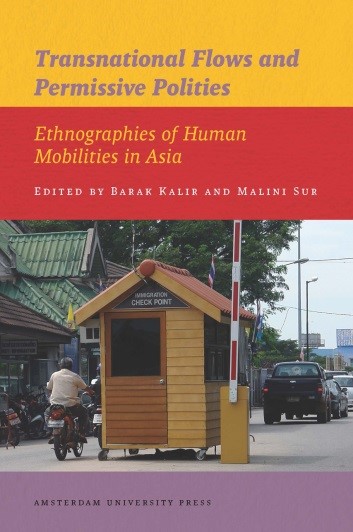
POLLY PALLISTER-WILKINS (p.e.pallister-wilkins@uva.nl) - UNIVERSITY OF AMSTERDAM
Polly Pallister-Wilkins is an assistant professor in the Department of Politics at the University of Amsterdam, a Scientific Collaborator at the Recherche et Enseignement en Relations Internationales, L’Université libre de Bruxelles, a member of the Horizon 2020 ADMIGOV: Advancing Alternative Migration Governance research team, and the Forum and Review editor of Geopolitics. She earned her PhD from SOAS, University of London in 2010. She is a political geographer and works at the intersection of mobility, border and critical humanitarianism studies. For the last seven years she has been researching the different actors — border police, humanitarians, activists — engaged in what she calls humanitarian borderwork across Europe with a specific focus on Greece and the ‘Hotspots’. Her research on the humanitarian politics of European border policing looked at the everyday practices of the Greek police and Frontex in controlling the border and saving lives of those both at risk and a risk, meanwhile her work on search and rescue has drawn attention to the role of such humanitarian practices in reproducing, strengthening and externalising EUrope’s border controls. More recently she has focused on the geographies of humanitarian medical relief in contexts of mobility and her research on the ‘hotspot approach’ has argued such efforts work to protect EUropean space and society through enacting a combination of border controls and humanitarian relief. This year sees the publication with Routledge of her edited volume on ‘Secrecy and Methods in Security Research’ and she is finalising a monograph examining humanitarian responses to unequal mobility regimes.
Author of
(2018) "Hotspots and the geographies of humanitarianism". Environment and Planning D: Society and Space.
(2015) "The Humanitarian Politics of European Border Policing: Frontex and Border Police in Evros". International Political Sociology 45 (9): 53-69.
EVTHYMIOS PAPATAXIARCHIS (epapat@sa.aegean.gr) - UNIVERSITY OF THE AEGEAN
Evthymios Papataxiarchis is Professor of Social Anthropology at the University of the Aegean where he directs the Postgraduate Program on “Social and Historical Anthropology” and the Laboratory of Ethnography. He holds a Bachelors and a PhD degree in Social Anthropology from the London School of Economics. Professor Papataxiarchis has taught as a visiting professor in the Universities of Athens and Crete, in the École des HautesÉtudesen Sciences Sociales (Paris) and in Bogadici University (Istanbul). His publications include Lilies of the Field: Marginal People Who Live for the Moment, (ed. with S. Day and M. Stewart, Westview Press, 1999), Adventures of Alterity: The Production of Cultural Difference in Contemporary Greece, (ed., Alexandria Publications, 2006, in Greek), Worlds of Domestic Labour: Immigration, Gender and Cultural Transformations in early 21th century Athens, (with Penelope Topali and Aggeliki Athanassopoulou, Alexandria Publications, 2008, in Greek). He has also edited special issues of Ethnologie Française(v. 35, 2005) and Synchrona Themata (v. 98, 2007 and v.107, 2009) on cultural differentiation and the challenge of migration in contemporary Greek society.
Author of Being 'There' (2016) & La Grèce face à l’altérité (2005)
Editor of GRÈCE.ΕΛΛΑΔΑ. Figures de l’altérité (Ethnologie française, 2005) &
Adventures of Alterity: The Production of Cultural Difference in Contemporary Greece (2015) (Second edition, in Greek)
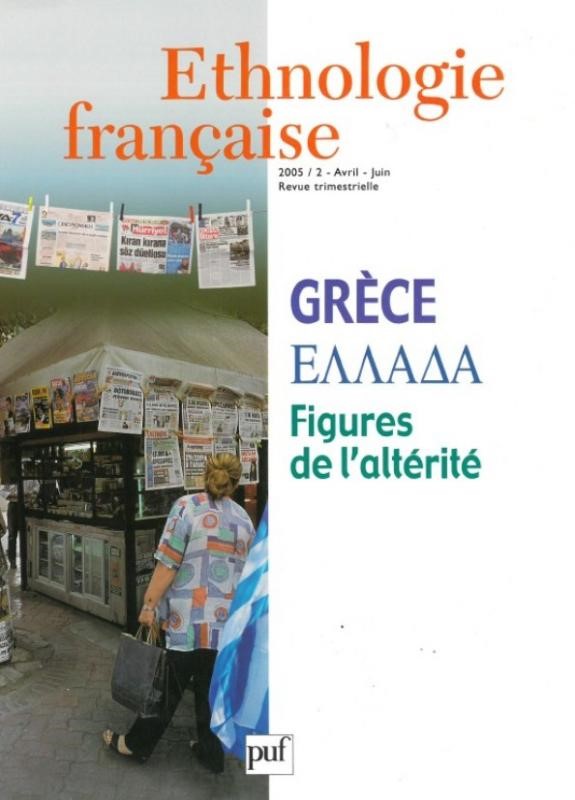
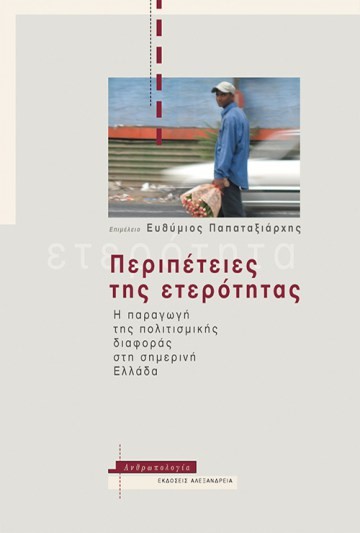
MARICA ROMBOU-LEVIDI (romboulevidis@gmail.com) - PANTEION UNIVERSITY ATHENS
Marica Rombou-Levidi studied Politics with Sociology at the Polytechnic of Central London (PCL) and Birkbeck College (University of London) in the 1970s. She received her Phd in Anthropology from the University of Sussex in 2009. She also studied, performed, and taught various forms of dance at the Royal Ballet School (London), The Place (London), and in Athens. She has worked for many years in primary education in the field of cultural programs for young children. During the last twenty five years she has engaged into long-term ethnographic research on the relationship between the cultural and the political in Northern Greece, focusing on the northern borderlands of the country. She has lectured on anthropology of music and dance at the department of Popular and Folk Music of the Epirus TEI and on the anthropology of nationalism and ethnicity at the Anthropology Department of Panteion University, Athens.
She is the author of two ethnographies:
Life under surveillance. Music, dance and the formulation of subjectivity in Macedonia. (2016) (in Greek), which focuses on the relation between cultural practices and the processes of identification in Eastern and Central Macedonia – Greece and
"Here kaputt": Border violence. Migration, national sentiment and gender in the Greco-Albanian borderland (2018) (in Greek), which deals with "mixed marriages" between Albanian women migrants and Greek men in the Greco-Albanian borderland (Western Macedonia – Greece).
Co-author of Audiovisual Media and Identity Issues in Southeastern Europe. (2011)
Co-author of several other books in Greek.
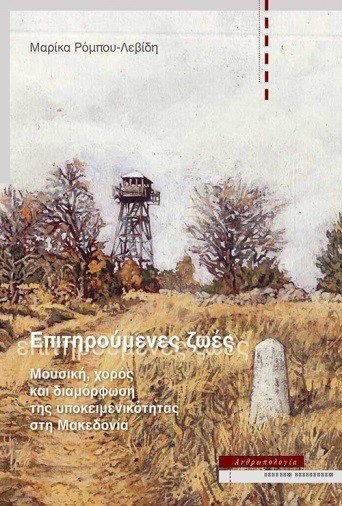
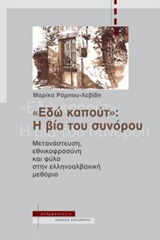
KATERINA ROZAKOU (K.Rozakou@uva.nl) - PANTEION UNIVERSITY
Katerina Rozakou is an assistant professor of anthropology at Panteion University of Social and Political Sciences. Her research interests include humanitarianism, volunteerism, solidarity, the state, sovereign power, and migration. She received her PhD in Social Anthropology at the University of the Aegean and she has worked as a postdoctoral researcher at Princeton University and at the University of Amsterdam. Her most recent project was an exploration of the governance of the “migration crisis” in Greece and state/ non-state practices of deportation. Her publications include the monograph "Out of 'love' and 'solidarity': Voluntary work with refugees in early 21st century Athens" (2018; in Greek, English version in preparation) and the co-edition of the volume “Greek paradoxes: Civil society, patronage and violence” (2013).
Author of
(2018), Out of 'love' and 'solidarity': Voluntary work with refugees in early 21st century Athens. (in Greek)
(2017), “Non-recording the “European refugee crisis” in Greece: Navigating through irregular bureaucracy". Focaal 77: 36-49;
(2016a), “Crafting the volunteer: Voluntary association and the reformation of sociality”, Journal of Modern Greek Studies 34 (1): 78–101;
(2016b), “Socialities of solidarity: Revisiting the gift taboo in times of crises”, Social Anthropology 24(2): 185-199;
(2013) Greek Paradoxes: Patronage, Civil society and Violence. (in Greek)
(2012) "The biopolitics of hospitality in Greece: Humanitarianism and the management of refugees", Journal of the American Ethnological Society 39 (3): 526–577 &
(2011) The Pitfalls of Volunteerism.The Production of the New, European Citizen in Greece.

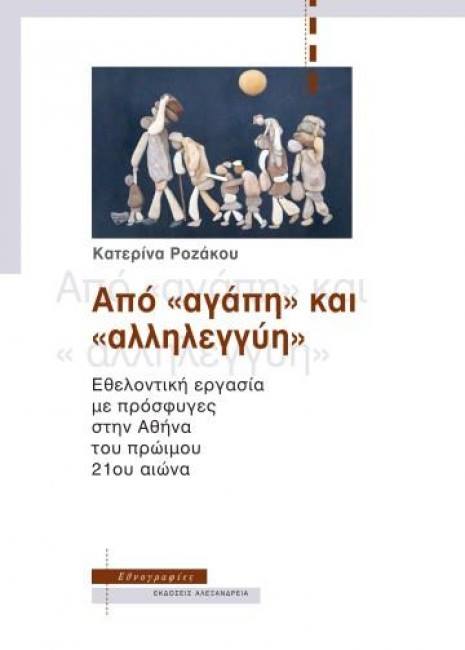
Ayşen Üstübici (austubici@ku.edu.tr) - Koç University
Ayşen Üstübici is currently an Assistant Professor at Koç University in Istanbul, Turkey, at the Department of Sociology and the Department of Political Science. She completed her PhD at Koç University and at the University of Amsterdam in 2015. Her book, based on her dissertation entitled ‘The Governance of International Migration: Irregular Migrants' Access to Right to Stay in Turkey and Morocco’ has been published by the University of Amsterdam Press. The book compares irregular migration regimes and the effects of border externalization from the perspective of state and non-state actors and migrant incorporation in Turkey and Morocco. Her current research, on local integration in different districts of Istanbul focuses on the question of integration and social cohesion at the level of local governance. She is also involved in two new research projects as part of EU-wide consortia funded with Horizon 2020 framework; one on migration-development nexus, another on alternative migration governance. Her areas of interest include international migration, irregular migration, externalisation of border management, social and public policy, the informal labour market and gender studies. She published articles in Geopolitics, New Perspectives on Turkey, Migration and Development.
Author of
The Governance of International Migration: Irregular Migrations Access to Right to Stay in Turkey and Morocco (Amsterdam University Press, 2018). OPEN ACCESS - http://www.oapen.org/search?keyword=9789462982765+
"Political Activism Between Journey and Settlement: Irregular Migrant Mobilisation in Morocco." Geopolitics 21, no. 2 (2016): 303-324.
“Border Closures and the Externalization of Immigration Controls in the Mediterranean: A Comparative Analysis of Morocco and Turkey.” New Perspectives on Turkey 59 (2018): 7–31. doi:10.1017/npt.2018.21.
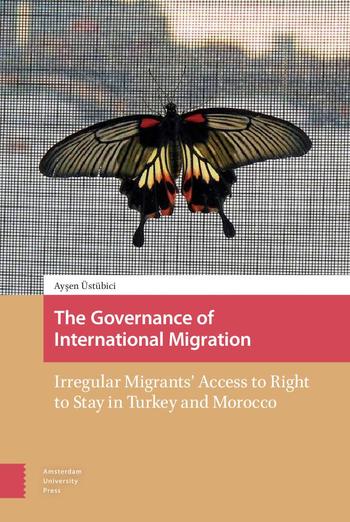
NIKOS XYPOLYTAS (nxypol@soc.aegean.gr) - UNIVERSITY OF THE AEGEAN
Nikos Xypolytas was born in 1979 in Athens and works as an Assistant Professor at the University of the Aegean who specializes on migration and labour. He studied Sociology at the University of Newcastle upon Tyne (2001-2004) and he received his Masters from University of Oxford (2005) with an emphasis on Economic Sociology. He completed his PhD in Greece at Panteion University, (2012) and looked at the consequences of migrant domestic work on the familial and social relationships of migrants. He teaches Sociology of Migration at the University of the Aegean and has taught at Panteion University (Greece), at the University of Cyprus (Cyprus) as well as private institutions of higher education in Greece and abroad. His academic focus is on the reproduction of migrant labour and his recent research activity looks at refugees’ long processes of marginalization which undermine their future social position in the host countries.
His recent relevant publications are the following:
Xypolytas, N. (2019) Refugees in Moria: Consequences of a Deterrent Migration Policy. Athens: Dionikos (forthcoming, in Greek)
Xypolytas, N. (2018) “The Refugee Crisis as a Preparation Stage of Future Exclusion: The Effects of the Country of Origin Turmoil and Refugee Management on Work Orientations”. International journal of Sociology and Social Policy 38 (7/8): 637 - 650
Xypolytas, N. (2017) “Preparation, Allocation, Habituation: The Holistic Approach to Migrant Exclusion” Social Cohesion and Development 12 (1): 57 – 71.